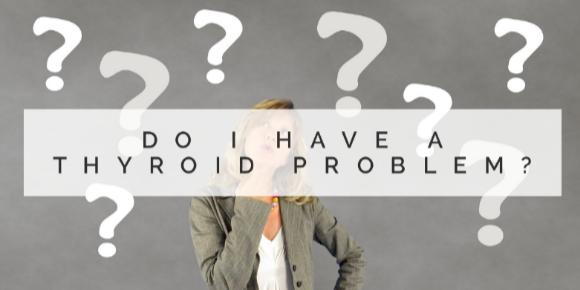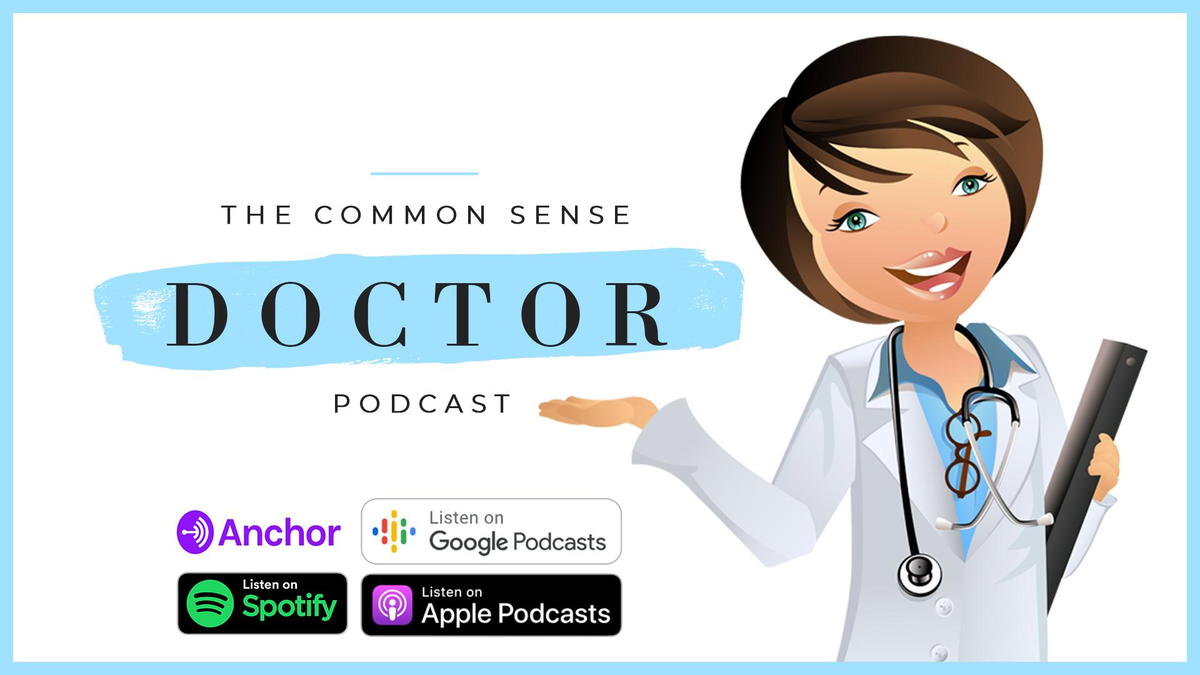Do I Have a Thyroid Problem?

- posted: Aug. 06, 2019
First, we need to know the chemicals and hormones involved with the thyroid, so you can better understand how it works.
TRH = Thyroid Releasing hormone. This is made by the Hypothalamus, which tells the pituitary gland to get ready to release the thyroid hormone.
TSH = The Thyroid Stimulating Hormone is produced by the Pituitary Gland telling your thyroid to make more hormones. If your TSH is low, its not your thyroid but it is your pituitary gland not communicating properly to your thyroid. (Are you being misdiagnosed with Synthroid, we need to evaluate your testing to figure this out and not just rely on TSH)
T4 = This is the hormone produced by the thyroid that will later convert to T3. I like to think of T4 as a storage unit or holder of hormones for later use. Sometimes I describe it as an egg, you need to crack it to make scrambled eggs as an edible form. T4 is your egg and T3 is your scrambled egg.
T3 = This is the active thyroid hormone. It does most of the work. It is what enters the cells and gives it the energy or metabolism to work.
Now, two important things to remember for thyroid testing. There is a Free (active) form and a Bound (inactive) form. Think of it this way. Bound T3/T4 is like a married couple. It has its partner and they are busy with other activities. Free form is like a single person, still going out, looking for its mate. The free form is what is more important on tests because it is what is floating around looking to support and bind to cells to give energy. It is looking for its mate to continue everyday life functions.
Therefore, the Thyroid test we want to run to see how the Thyroid is functioning is not just TSH. (Actually, TSH does not tell us much except how the pituitary is talking to the thyroid.) We want to look at how the thyroid hormones are produced and what enzymes are lacking for this production.
What We Need To Evaluate:
TSH
Total T3/T4
Free T3/T4
Reverse T3
TPO = an indicator for Hashimoto’s, an autoimmune disorder
TSI = indicator for Graves’ disease
If your TSH is normal but you feel like you have a thyroid issue, you might. Remember your TSH only tells you how your pituitary is talking to your thyroid. Your Thyroid produces your T4 and T3 hormone. These hormones are necessary for:
- Sex hormone responses
- Bone development
- Neurological development
- Metabolism
- Cardiovascular responses
- Digestion
- Liver function
If T4 or T3 are not working properly and TSH is normal, we must look at other factors such as:
- Gastrointestinal dysfunction
- Environment (heavy metals, harmful chemical exposure, everyday hygiene and beauty products)
- Hormone Imbalances
- Nutrition
- Detox Dysfunction of the Liver
- Oxidative Stress
- Immune dysfunctions
- Candida
Gastrointestinal dysfunction: bile converts T4 to T3. If we don’t have proper bile acid, then we cannot convert the thyroid hormones and therefore it can lead to hypothyroidism. If we do not consume enough protein in our diet, this will lead to a decrease in zinc and selenium and B12 which can make our thyroid hormone production sluggish.
Environment: If we are exposed the chemicals: Lead, Cadmium, Mercury, these chemicals destroy the necessary nutrients needed to convert our T4 to T3 leading to hypo or hyperthyroidism. Many of the chemicals in our makeup, shampoo, drinks, and hygiene products have chemicals that disrupt and stop the thyroid from working. Three important ones to avoid are: Chloride, Bromide, and Fluoride. Other toxic chemicals known for destroying the thyroid are: PCB’s, PBDE’s (these disrupt the communication between the hypothalamus, pituitary, and thyroid gland communication), BPA’s EBDC’s, Phthalates, Parabens, Porphyrins, and Pesticides.
Hormone Imbalances: If we have high levels of estrogen it will increase a binding globulin which will limit the amount of Free thyroid hormone and if we do not have enough of that free thyroid hormone it can’t bind to the cells and give it energy to produce new functions.
Nutrition: Let us review the enzymes and nutrients needed to start the conversion of these hormones.
• Selenium = Found in brazil nuts. It is needed for thyroid hormone conversion enzyme
• Iodine = Found in seaweed. It is needed to get rid of the toxic chemicals Bromine, Chlorine, Fluorine. It also produces thyroid hormone and other hormones
• Zinc = Found in pumpkin seeds. It is need for the thyroid hormone receptor
• Tyrosine = protein/ amino acids. It combines with iodine to make the thyroid hormone T4
• Magnesium, Calcium, Manganese, Vitamin C , E ,B6 ,B12 ,A ,D
Vitamin D is necessary to make T3. For vitamin D to be activated it must have vitamin A and Cholesterol. Therefore, we always recommend Cod Liver oil for thyroid patients. It contains the necessary fatty acids, Vitamin A and Vitamin D
Liver toxicity: T4 is produced in the thyroid but it converts the active from of T3 in the liver. If your liver is toxic or not functioning properly, this conversion can never occur and therefore your cells are not getting the necessary energy to function.
Stress: When the adrenals produce cortisol, it will tell the thyroid to slow down. The problem is, if the thyroid keeps slowing down then it will stop communicating to the ovaries and testes leading to hormone and libido issue. It will also stop energy production in the cells of the body which will get back to the adrenal glands eventually stopping cortisol production. This becomes a horrible cyclical effect, and many women will be placed on antidepressants for the vast issues and symptoms they have, that doctors cannot diagnose.
Long term cortisol production and a slow thyroid can lead too: slow digestion, malabsorption of nutrients, poor blood sugar, nervous excitability, immune suppression, and slow metabolism. At this point, do we fix the Thyroid, or do we fix the Adrenals? I say both.
I am confused, do I need to be on Synthroid?
Many times, patient’s ask me this question and I discover it is based on the test their doctor ordered. If the doctor is just relying on TSH, I do not find this to be an accurate assumption. It is old and inaccurate diagnosis with current research.
As I mentioned previously, we want to look at all avenues of the thyroid’s function, so therefore, we order several tests concerning the thyroid as well as nutrition.
One old school trick was if the patient took their temperature by mouth and it was 97 to 97.6, this was a sure indicator of hypothyroidism. The thyroid is known for energy production in the cells and if the body temperature is low, it is not producing energy. Another trick was the loss of the outer third of the eyebrow. This is how your traditional doctors would confirm or back up the other signs and symptoms of the patient. If you look at the symptoms of Thyroid, Adrenal stress, and Hypopituitary dysfunction, they all will mimic the same signs and symptoms.
We need to know if the thyroid is not functioning properly due to the Pituitary’s function, the over stressed Adrenal glands, Exogenous estrogens in the body, lack of nutrition, or the lack of T4/T3 conversion, or a toxic liver. That is a lot of factors for why your thyroid is not functioning properly.
First, lets talk about the drugs Synthroid and Armour-Thyroid. These two drugs make T4. Yet, they will covert to Reverse T3 and then this will destroy D2 enzyme necessary to make T3. Didn’t we just say that T3 was necessary for all cell energy function? Why would we want to destroy it?
What if T4 is not the reason for the low thyroid, but it is the pituitary gland, or overactive cortisol, or the lack of iodine and selenium, or the lack of Vitamin D conversion, or maybe our liver is so toxic we cannot convert T4 to T3. This is why each individual test is so important.
We found that if your cholesterol is up the patient tends to have a low T4.
If the patient has a low TSH and a low T4 this is usually a sign of a Hypothalamus or Pituitary issue, so how is stimulating the T4 with a medication going to change that? It’s not!
Stress can slow down T4-T3 conversion.
I just want women to take ownership of their health and understand that hormones are not just a black and white issue but there are so many gray shades in between.
Sometimes, when we get on unnecessary medication or bio-identical hormones, we can make a problem worse and prolong a problem that is not really being fixed due to misdiagnosis. Let’s begin to look at all aspects of hormone dysregulation. We need to start by changing our lifestyle and diet to help keep us from getting in this position. Sometimes small steps such as this can fix bigger problems and narrow down the root cause of these hormone imbalances.
If you need further help with this issue, please contact our office for a consultation or lab work evaluation.
Dr. Cherie Johnson DC CFMP
LISTEN TO OUR LATEST EPISODE OF OUR PODCAST, THE COMMON SENSE DOCTOR.
HOURS OF OPERATION
Our Regular Schedule
7:30 am - 2:30 pm
3:45 pm - 5:00 pm
Closed
7:30 am - 2:30 pm
3:45 pm - 5:00 pm
Closed
7:30 am - 2:30 pm
3:45 pm - 5:00 pm
Closed
Closed
Locations
Find us on the map
Chiropractic Acupuncture Health Center
2224 Cahaba Valley Drive, STE B3
Birmingham, Alabama 35242, United States


